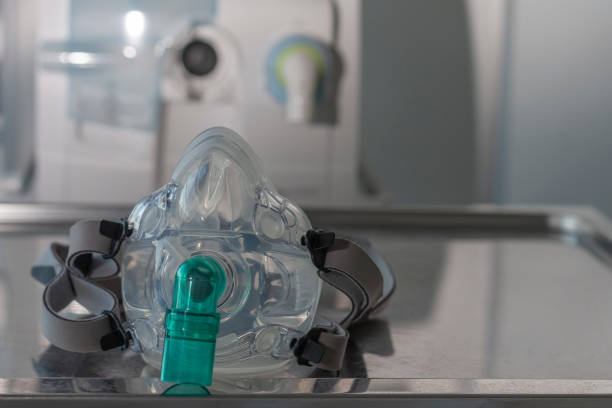Name of the project : MEGA – Modelling alveolar-capillary gas exchange
Type of project : Research projects
Summary:
The number of patients in intensive care units due to ARDS (Acute Respiratory Distress Syndrome) has skyrocketed since COVID-19 first hit. However, a controversy is brewing in the medical community as to the pathophysiology of COVID-19-related ARDS, thus complicating the work of anesthesiologists, who receive divergent information about how to manage patients with severe forms of COVID-19. This lack of consensus reveals the current limits of knowledge of the virus and its impacts on infected individuals.
Different theories have been developed to explain the insufficient oxygenation that patients suffer from. One of these theories is of circulatory origin. This hypothesis suggests the existence of microthrombi in the pulmonary capillaries, due to which positive pressure ventilation – typically used for ARDS patients – could increase ischemia phenomena (decreased blood flow) and disrupt gaseous exchanges by imposing mechanical stress on the micro-vessels. But why does gaseous exchange no longer take place correctly? How to explain the fact that insufficient amounts of oxygen pass through the alveolar-capillary wall to reach the circulatory system, and conversely that insufficient carbon dioxide is eliminated from the blood via respiration?
The MEGA project proposes to study alveolar-capillary gas exchange by simulation in order to better understand the phenomena at the origin of hypercapnia (excess CO2 in the blood) in patients with a severe form of COVID19. To do this, a simplified phenomenological mathematical model of these exchanges that makes it possible to correlate changes in physiological circulatory and respiratory constants will be developed.
Beyond the development of a model, the MEGA project aims to better understand the specificities of ARDS-C versus other ARDS by testing the various hypotheses made by clinicians in the literature and thereby identifying the most relevant mechanism. Secondly, the model will allow for the proposal and in silico testing of alternative therapeutic strategies (evolution of current ventilators, optimization of ventilation protocols).
Once calibrated and validated based on clinical data, this model will make it possible to identify optimal management strategies (pulmonary pressure, blood viscosity, capillary blood volume to describe the effects of fibrosis, thoracic compliance, etc.) to improve the physiological state and blood oxygen levels more notably, which is a critical issue with regard to COVID-19. The objective of the MEGA project is to ultimately improve care for patients with severe forms of COVID-19 by providing a decision-support tool for anesthesiologists in their treatment choices.
Université Gustave Eiffel – Applied biomechanics laboratory (AP-HM): Covid reanimation unit at the Timone Hôpital d’Instruction des Armées Ste Anne (Toulon) and Laveran (Marseille)
Name of supervisor(s) : Claire Bruna Rosso (LBA) et Salah Boussen (AP-HM)
Start and end of the project : 3 May 2021 - 30 April 2022
Duration : 12 months

